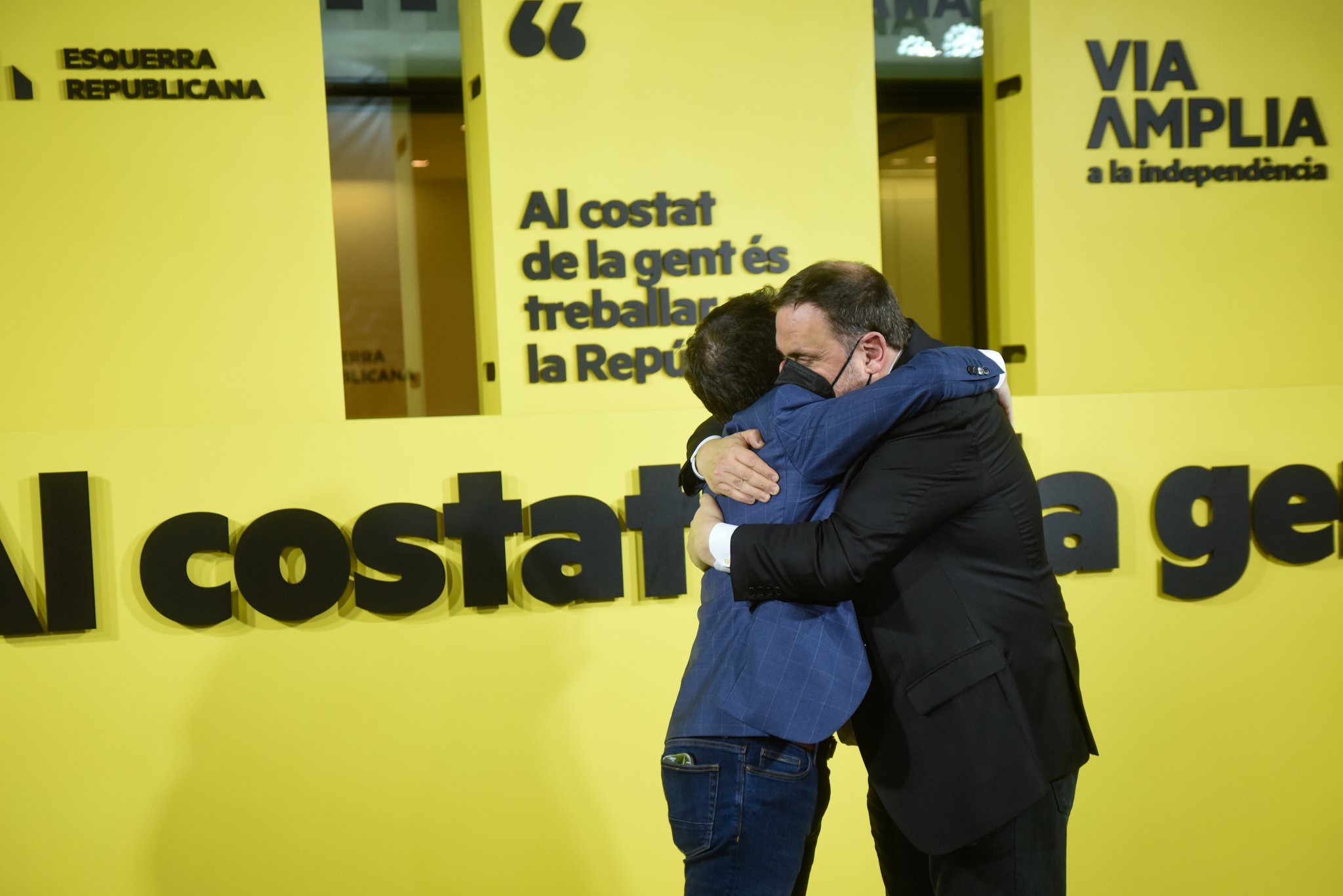With the election results having confirmed that he is the only candidate with options to be Catalan president, Pere Aragonès's phone kept vibrating well into the wee small hours. And it has continued to do so since early on Monday morning. There have already been contacts with the leaders of the three parties with whom the Republican Left (ERC) leader aspires to include in a grand coalition, which he would lead: Laura Borràs (Junts), Dolors Sabater (CUP) and Jéssica Albiach (Comuns). With the first two he was able to speak briefly. With the last, messages were exchanged. Now comes the time to sit down and start having serious conversations. That will happen throughout the week.
March 12th is the deadline for constituting the new Parliament, the most fragmented in history. Within ten working days after that, the first investiture session must be held, at the latest on March 26th. But Aragonès aspires to reach agreements long before the deadline. ERC are aiming high. The party wants not only a coalition that will enable the investiture of the president, but also, it hopes to construct a solid majority so that, for the first time in more than ten years, the result will not be a minority government. The preferred option, a virtually impossible mission, would be a grand coalition joining the pro-independence Junts and the CUP and the left-wing Comuns. A formula that would add up to an overwhelming majority of 82 deputies — when the absolute majority is 68.
With all of these desired allies, Aragonès seeks to reach agreement on a plan for governance that, in addition to the investiture vote for the president, would be linked to a pact for the next Catalan government budget. In the face of those who assert that it is an impossible dream, as Junts and the Comuns have each vetoed the other, the acting Catalan vice president holds up the budget deal that that was reached in the last legislature, which had the endorsement of both parties. The idea is now to lay the groundwork for bringing together all the sovereignist forces that are in favour of an amnesty and an agreed referendum on independence.
The "impossible" sum
For those who doubt whether ERC will fulfill the campaign promise of staying away from any agreement with the Catalan Socialists (PSC), party president Oriol Junqueras was emphatic in an interview with TV3's Els Matins on Monday morning. "A government with the PSC is impossible, we are incompatible," he said. Arithmetically, the tripartite is possible, as it would bring together 74 deputies, exactly the same number as a three-way pro-independence pact, but ERC completely buried the option of a pact with the Socialists in Catalonia. Another thing, however, is Madrid.
Resurrection of the dialogue table
In parallel to the talks to form a Catalan government, the gaze of ERC is fixed on the Moncloa palace in Madrid, whose tenant, Pedro Sánchez, promised to reactivate the negotiating table between Catalonia and the Spanish state immediately after the 14th February elections. The fact that ERC has put itself in the driver's seat of the pro-independence bloc resurrects the space for dialogue. Aragonès's party were the driving force behind it, following the agreement they made to invest Pedro Sánchez as Spanish PM, but Quim Torra and the other members of Junts looked at it with suspicion and this left the table in a lethargy that could now end.
In the main image, Oriol Junqueras and Pere Aragonès share a celebratory hug on election night / Marc Puig

